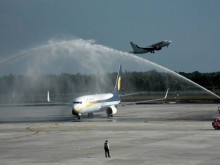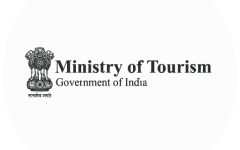 In an earnings conference call for Q2 FY2019 of the Jet Airways management with analysts, Vinay Dube, CEO, Jet Airways, has said that the airline remains focused on its airlines business turnaround. He said, “Instead of witnessing an increase in fares to recover cost increases, the industry fares and yields are in fact down. Such a low-fare environment is neither sustainable for the industry nor good for the consumer in the medium term, and it is imperative that fares rise in the short term. However, hope is not a strategy, and we remain focused on our airlines business turnaround, which we are happy to report, is on track.”
In an earnings conference call for Q2 FY2019 of the Jet Airways management with analysts, Vinay Dube, CEO, Jet Airways, has said that the airline remains focused on its airlines business turnaround. He said, “Instead of witnessing an increase in fares to recover cost increases, the industry fares and yields are in fact down. Such a low-fare environment is neither sustainable for the industry nor good for the consumer in the medium term, and it is imperative that fares rise in the short term. However, hope is not a strategy, and we remain focused on our airlines business turnaround, which we are happy to report, is on track.”
Underlining some of its efforts, he added, “Our operational reliability and on-time performance is the best we have seen over the last three years. The airline’s arrival on-time performance for this quarter was 84 per cent, which is a substantial 15 per cent point higher than Q2 of last year.”
Sharing the results of the second quarter for fiscal year 2019, Dube said, “This quarter, we reported a loss of Rs 1,261 crore at a consolidated level. Excluding the impact of foreign exchange losses due to the depreciation rupee, the loss was Rs 823 crores.”
Speaking about the challenging times the industry in general has been witnessing, Dube said, “While aviation in general is not an easy business globally, in India both the opportunities and challenges faced by the sector are at a totally different level. The opportunity is staggering because of our highly underpenetrated aviation market with a fast-growing economy and a growing population. But the challenges are equally staggering, as airlines battle for market share, not profitability, by dumping capacity into a market at unprecedented levels, enabled by fare regimes that are unsustainable. You are seeing this clearly play out as each of the airlines report results for the second fiscal quarter.”
The airline also shared its strategy on the network front. Dube said, “The airline is undergoing a comprehensive update of its network, along with products and services offered. The strategy includes concentration of capacity, enhancing frequency density and hub connectivity to better serve our corporate customers, which contribute to more than 45 per cent of our revenue. The measures will include rationalisation of our operations on uneconomic routes and the redeployment of these assets to more productive and economically-efficient international, as well as domestic sectors, closely aligning capacity with the demand characteristics of specific markets. Effective August 29, 2019, we have introduced 28 new flights in our domestic network, which include industry first flights connecting Indore with Jodhpur and Vadodara and additional frequencies on Mumbai to Guwahati. To complement the changes in our network, we are also implementing new revenue management strategies that help us cope with a difficult fare environment. The implementation of these strategies is going well, and we expect to see this bear fruit over the coming quarters.”
Breaking News
- Somalia leads FTA growth to India with 144% rise in 2024 over 2019; Cambodia, Kazakhstan follow
- Longer stays and US$ 35 billion earnings highlight India’s 2024 global tourism rebound
- Turkish Ambassador hosts special lunch in Delhi to highlight tourism opportunities with India
- Agoda reports 67% surge in international travel searches for Diwali 2025
- One Above Global gets ‘Leading DMC for Island Destinations’ recognition @ITA
- AI adoption, digital tools to enhance guest experience at Radisson: Nikhil Sharma
- Goa proposes 20,000-seat arena, Lord Parshuram statue and museum to boost tourism
- Suman Billa urges youth to pursue tourism entrepreneurship beyond hospitality jobs
- World Food Day 2025 unites experts to tackle food myths and promote food literacy
- Air India adds 170 weekly flights to domestic and short-haul international network this winter
- TAAI continues its Visa Insights workshop in 7 cities, to be held in Mumbai soon
 Tourism Breaking News
Tourism Breaking News


